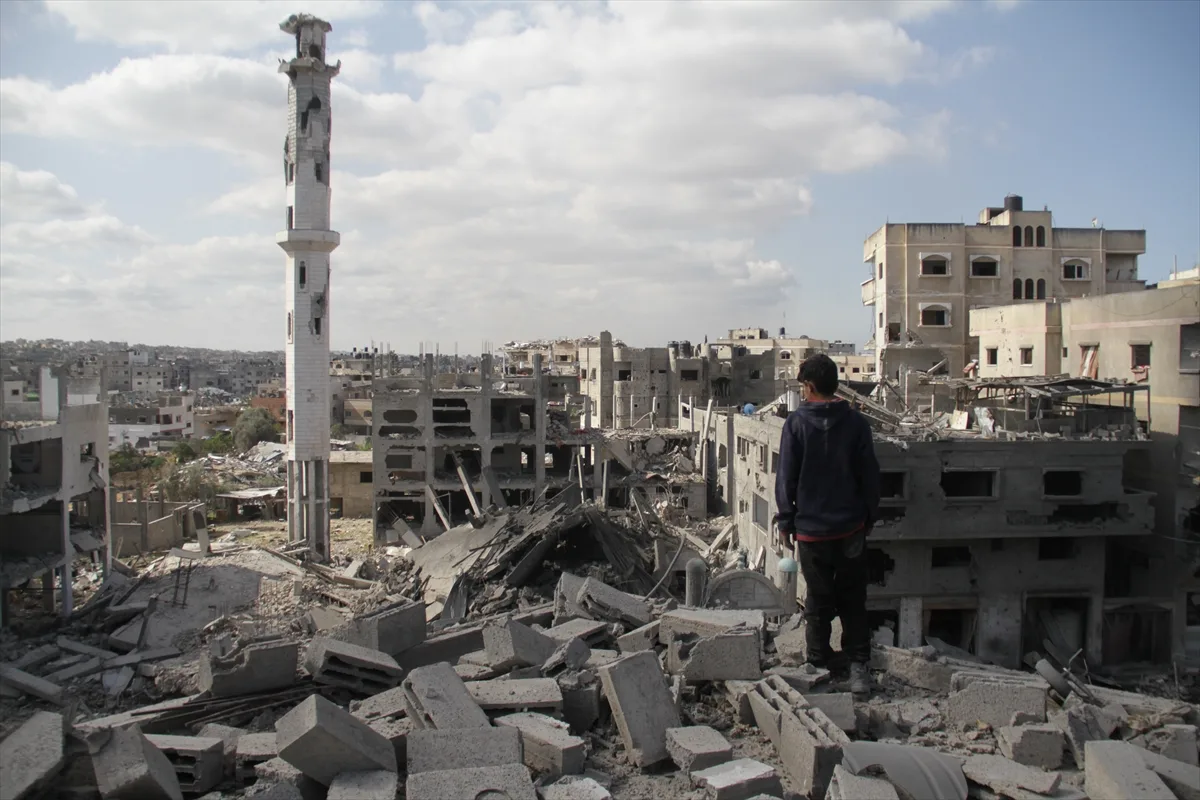
As the world wobbles on the brink of conflict, it is essential to assess the state of global peace efforts and their glaring shortcomings. Despite decades of diplomacy and international cooperation, the current geopolitical landscape is marred by unrest, violence, and instability, suggesting that we are on the precipice of another major war.
The failures of global peace efforts are starkly evident in the ongoing conflicts that dominate our headlines. In Gaza, the cycle of violence shows no signs of abating in fact directly or indirectly engaging the whole middle east since decades and has currently turned into Iranian retaliation against Israel, despite countless attempts at ceasefire negotiations. Back in 2022, the war in Ukraine escalates, threatening to draw in larger powers and destabilize Europe. These examples highlight not just a lack of effective diplomacy but a systemic breakdown in the mechanisms designed to foster peace. Furthermore, the major contributors to this failure include regional conflicts, regional and global powers acting as facilitators rather than mediators, evolving nature of warfare (including digital attacks and hybrid warfare), and the failure of regional and international organizations.
Currently, regional conflicts are escalating, especially in the Middle East. The ongoing tensions between Israel and Hamas threaten to spill over into a broader regional war, with Hezbollah and Iran’s lurk as potential aggressors till April 2024. On 14 April Hossein Salami announced Iran’s new strategic doctrine of acting directly rather than through proxies, stated that “From now on, if the Zionist regime attacks our interests, assets, people or citizens at any point we will counter attack from the Islamic Republic of Iran.” Thereafter, it was followed by numerous high-profile assassinations of political and military leaders of Iranian proxy groups and resulted in full-fledged missile attacks on Israel on 1 October 2024 by Iran. Consequently, the death toll of the Palestinians had been increased to 41431 and 95818 injuries (more than 50% were women and children) since 7 October 2023 (Hamas attack on Southern Israel) to 22 September 2024 as estimated by Palestinian News & Information Agency (WAFA). Each miscalculation in this already volatile region could lead to disastrous consequences, not just locally but globally. As geopolitical stakes rise, the potential for a major conflict looms larger than ever. Another contributor in peace building efforts is the role of the regional and international powers acting as facilitators rather than mediators. In the current Iran-Israel conflict, peace negotiations can yield different outcomes depending on whether powers act as facilitators or mediators.
Additionally, the evolving nature of warfare like digital attacks and hybrid warfare poses new challenges to traditional peacekeeping efforts. States like the US, Russia, China, Iran, North Korea, and Israel are increasingly involved in digital attacks and hybrid warfare. The US has conducted cyber operations against ISIS and employed hybrid tactics in Ukraine, while Russia exemplifies hybrid warfare through its annexation of Crimea and cyberattacks on Ukraine. China combines military expansion in the South China Sea with economic coercion and cyber-espionage.
While, Iran has executed cyberattacks, including the 2012 assault on Saudi Aramco, and supports regional proxies. North Korea’s cyber operations, such as the 2014 Sony Pictures hack, highlight its hybrid tactics. On top of all, Israel’s use of exploding pager devices against Hezbollah in September 2024, resulted in the deaths of at least nine people and injured thousands, showcasing the lethal potential of digital warfare. The involvement of these states in complex conflicts poses significant challenges to traditional peacekeeping missions, which struggle to address non-conventional tactics and require new strategies and technologies to maintain peace and security effectively.
Subsequently, the failure of regional and international organizations to effectively manage conflicts further exacerbates the situation. For instance, regional organizations like the African Union and the ASEAN have struggled to manage conflicts effectively despite their initial capabilities and slogans such as “African Solutions to African Problems.” These challenges stem from limited resources, the complexities of international dimensions in conflicts, and the UN Security Council’s paralysis due to competing interests among its permanent members, which has contributed to ongoing crises. The UN, originally created to prevent conflict and promote peace, has faced criticism for its ineffectiveness in addressing wars, particularly following contentious decisions like the 1947 resolution to partition Palestine, which led to lasting tensions with Israel and its Arab neighbors. As seen in crises in Gaza and Ukraine, the limitations of international organizations hinder their ability to implement effective peace initiatives in an increasingly fragmented global landscape.
As reflecting on the above-mentioned challenges, it is vital to rethink the approach of international diplomacy. First, there is a need for genuine mediation efforts that engage conflicting parties in constructive dialogue, rather than allowing regional and global powers to merely facilitate limited agreements. Second, investing in resources and capacities for regional organizations can enhance their ability to manage conflicts effectively. Third, the UN Security Council needs to prioritize collective action over individual national interests, adopt clearer guidelines for intervention, and foster collaboration with regional organizations and civil society to address conflicts more holistically. Last, but not least, adopting peacekeeping strategies to address the evolving nature of warfare, including cyber and hybrid threats, will be essential to maintaining stability and promoting lasting peace.
